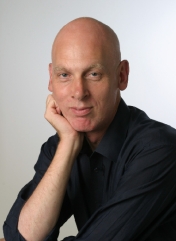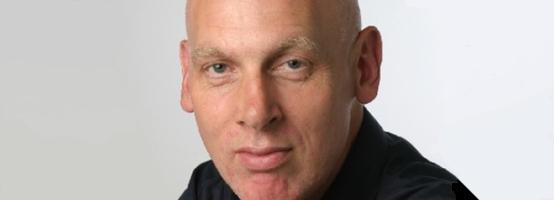Peter Wakker: “It’s irrational to insure your bike or computer.”
For several years, Professor dr. Peter Wakker has worked at the Econometric Institute of the Erasmus School of Economics, Erasmus University. His research focuses on decision making under uncertainty. Recently, he has finished a book on prospect theory, which is a theory for decision making under uncertainty. He is particularly interested in decision making with Bayesian statistics. He furthermore teaches master classes and supervises PhD students.
In this interview he will explain, among other interesting facts, principles for making good decisions.
What are your main research interests?
My main interest lies in decision making under uncertainty. When you are not sure about things, how is it still possible to make a decision? For all my life, this has been my main interest. It sounds like a paradox. You want to know about things you can’t know about, so to say. The Italian researcher Bruno de Finetti made a breakthrough discovery in the early 1930s showing that he saw through this paradox in a way that no-one had been able to do before.
 You also focus on decision making under uncertainty in health care. Why is that?
You also focus on decision making under uncertainty in health care. Why is that?
Indeed, health care is a big field of application and one of the things I do. When a patient visits a doctor, he or she obviously has problems. Next, the doctor inspects the symptoms, but it may happen that the doctor is not sure about what the disease is. He must then, based on the symptoms, decide what the treatment will be. Later it will turn out if the result is good or bad.
In fact, in every decision in life, uncertainty plays a little role. But in the medical domain it is so central, and so clear. It is one of the main fields of application for what I do.
Do you use your decision making theories also in your non-working life?
I definitely do, although the theories I use are abstract so that it is not possible for me to use them in a very concrete way. But I do know the kind of irrationalities people are known to have. If I recognize them in myself, I surely try to get rid of them.
Would this also be true if you are, for example, in a hospital and you had to discuss what kind of treatment to get?
Well, first I have to say that I am very lucky to always be healthy. Never in my whole professional career did I have never lost a day of work because of illness. My father has never missed a working day in his life either. I plan to do the same as him. So it has never happened to me that I have to discuss about my health with doctors. But of course, people dear to me were in a medical situation and I felt all the emotions as well. But in these situations, I still could think about best and rational solutions.
Do you also have advices for people in their decision making?
The one thing I most try to convince people about is what I have learned from my work about insurance. Very irrationally, people tend to insure everything they buy. If they buy a new computer, they insurance it. The same when they buy a bike: they insurance it. People are too afraid to lose things. They should be willing to take risks and accept that sometimes they might lose. Don’t be afraid of that. I therefore try to convince everybody not to insure small things. Don’t insure your bike; just take your loss if it comes. Because of my work, I can see what is good or useless to insure.
People have an innate fear of losing. And I think I recognise it in many people, in their behaviour. I try to avoid it for myself and I often try to convince other people to be less afraid to lose things than they do.
Was the decision for an academic career an uncertain one?
I was young and wanted to know everything. I read everything I could, and science has always been my big interest. At the age of 4, I was reluctant to go to school, and wanted to become a soldier. I remember how my mother convinced me to go to school: “Peter if you don’t go to school now you can’t be a soldier when you have grown up.” This convinced me. But once in school science took over and since then I have never thought of doing something else than becoming a researcher.
When I was about 10 years old, biology was my biggest hobby. I knew all the animals and their behaviour; it’s my nature I guess. But when I became 15 or 16 years of age, I began to like logic and mathematics. Logic really started to attract me, with its way of thinking. So then I turned to mathematics. But all of my life, biology has continued to be my hobby. I watch Discovery Channel endlessly.
Why do you also work at Maastricht University for one day per week?
About 15 years ago, I discovered that I don’t mind travelling: I feel fine in the train. So I realized I could take jobs at a certain distance from where I live, which enables me to do what I like most in each University. Also (hope my superiors don’t read here) this way I can escape from many meetings. An other advantage is that if you have different part time jobs, you meet more people.
More Information
Personal Homepage Peter Wakker



